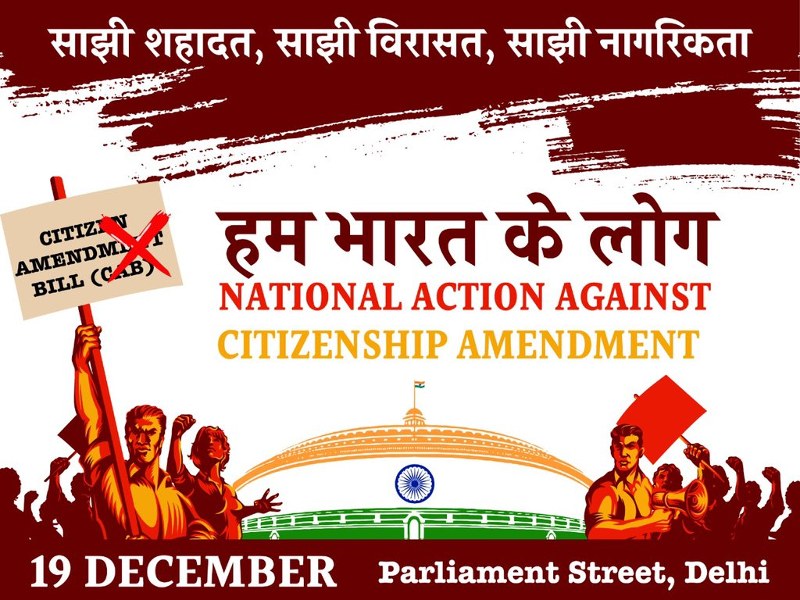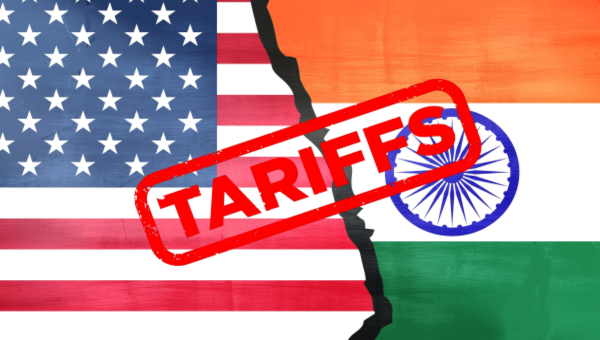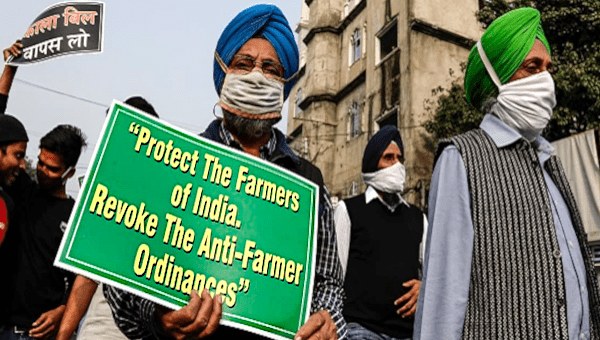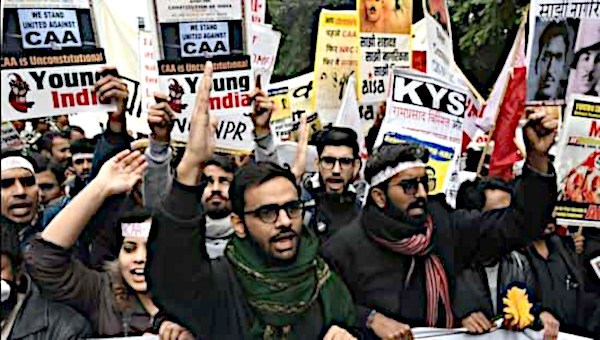Indian Government Going to War Against Its Own People
On December 13, the United Nations high commissioner for human rights released a powerful statement that criticized India’s new citizenship law. This “fundamentally discriminatory” Citizenship (Amendment) Act of 2019 would expedite citizenship for persecuted religious minorities from India’s neighboring countries. But in the list of those minorities, it names only Hindus, Sikhs, Buddhists, Jains, Parsis and Christians. It does not mention Muslims, despite the fact that there have been several important cases of Muslims being persecuted in Pakistan (the Ahmadis), in Afghanistan (the Hazaras), and in Myanmar (the Rohingya). The UN said that not only does this law violate India’s obligations to conventions, treaties, and compacts that it has signed at the global level, but also that it is in violation of its own constitution.

India’s ruling Bharatiya Janata Party (BJP) led by Prime Minister Narendra Modi put this bill before both the lower and upper houses of India’s Parliament. Apart from the Left and some regional parties, opposition in the lower house (the Lok Sabha) was weak; in the upper house (the Rajya Sabha), the bill passed by a slim margin – 125 votes to 105.
Protests against the Citizenship Amendment Act (CAA) are now ongoing in every part of India, with a cross-section of society outraged by the religious implications of this law. There are 200 million Muslim citizens of India, almost 15 per cent of the population; this bill sends a clear message that they should see themselves as second-class citizens. There is no other interpretation of the BJP’s agenda here.
Police Step-Up Violence
The BJP government was particularly ruthless against protests at two major universities – Jamia Millia Islamia in New Delhi and Aligarh Muslim University in Uttar Pradesh – both historically Muslim universities. The police have been extraordinarily violent against student protests during the past several months, but this was at another level. At Jamia, the police beat unarmed students, chased them into their dormitories and continued to beat them, and fired teargas into the library. There is video evidence of policemen burning buses, assaulting journalists, and creating the conditions of a full-scale police-driven riot; in Aligarh, there is video evidence of police damaging students’ motorcycles.
Brinda Karat of the Communist Party of India (Marxist), who went to Jamia during the attack, said, “The police action is unacceptable.” Jamia, she said, must be “freed of police presence and action be taken against those responsible.” The Delhi Police have announced that they “will investigate” the violence, although Deputy Commissioner of Police M S Randhawa seemed to suggest that all the violence came from the students, none from the police. Senior advocate Indira Jaising appeared before the Supreme Court on Monday to urge the bench – headed by Chief Justice S A Bobde – to take up the case, since the violence “is a very serious human-rights violation all over the country.”
As if on cue, the BJP government hastily shut down Internet access in India’s northeast, and in parts of the country where the protests have been most virulent. Last year, India led all other countries in Internet shutdowns. Overall, 67% of all shutdowns of the Internet took place in India; this year, already, 63% of all shutdowns have been in India. The Internet in Jammu and Kashmir has now been off for 136 days (between August 4 and December 17); there is no sign that it will be restored. Indeed, the suffocation of J&K continues unabated. The Kashmir Chamber of Commerce says Kashmiri businesses have lost more than US$1.4-billion in this period.
Several state governments have said they would not fulfill the provisions of the new Citizenship Amendment Act, since they argue that it is unconstitutional. The Supreme Court of India will soon discuss this bill. In Kerala, the Left Democratic Front’s Chief Minister Pinarayi Vijayan said, “We are accountable only to the ideals of the Constitution of India, not to the fundamentalist ideology of the RSS-BJP.” (The Rashtriya Swayamsevak Sangh is fascist movement that is behind the BJP.)
The Left parties have called for demonstrations on Thursday across the country against the Citizenship Act.
Austerity
International Monetary Fund chief economist Gita Gopinath is in India this week. She said the slowdown of the Indian economy had surprised many, “including us here at the IMF.” India’s GDP growth has slowed for the sixth consecutive quarter. All the noises made by the BJP government about “Make in India” are silenced by the slump in manufacturing and the low domestic consumption.
Not surprisingly, the IMF urges the Modi government to push ahead with its “structural reforms,” which include what is so euphemistically called “labour … market reforms” and “fiscal consolidation.” Labour-market reform means that the government should erase protections for workers, and regulations of businesses; fiscal consolidation means that the government must cut spending to lower public-debt levels. This means less earning power for the majority of the population, and lower government spending to create social programs for the public.
What the IMF proposes is what the BJP government wants to do: push a much deeper austerity agenda in India. This is precisely what students and workers, farmers and youth have argued against in protest upon protest.
The BJP government pushed for a 150% rise in hostel fees for the flagship university in Delhi, Jawaharlal Nehru University (JNU). This astronomical increase would force at least half the postgraduate students to leave their studies. A #FeesMustFall protest dynamic opened up across the country in solidarity with JNU, it being clear to the students that what happens at JNU will spread outward. The police violence against unarmed students was shocking. It was equally outrageous that the intelligence services visited the home in Sopat, J&K, of a former student leader, Aejaz Ahmad Rather, and said to his family chillingly, “A bullet never asks for an address.”
Farmer, peasant, and trade-union organizations have been consistently on the march against the Modi government’s various economic policies. In the past five months, the price of onions – a good indicator of food inflation – spiked by 253%. Rather than fix the endemic internal problems in the domestic onion market, a demand of farmer and peasant organizations, the BJP government has loosened rules for the import of onions, a demand of the big traders.
BJP policy is not made to benefit the working class and peasantry. It is made on behalf of the big businesses. It is almost as if the BJP-IMF slogan is “Save the Billionaires.” Little wonder that the farmer, peasant and trade-union federations have announced a major general strike for January 8, 2020. It is expected that hundreds of millions of workers and peasants will be on the streets on that day. Their charter of demands is a direct assault on the BJP-IMF austerity policies.
The First Bullets
The temperature in India is very high. The BJP government feels that it has a mandate to push through a hard-right agenda, both in economic and social policy. It has received backing for this from the IMF (in terms of labour-market reform and bank reform) and from its hard-right partners across the world (in terms of its citizenship and anti-immigration policies).
But the government faces stiff resistance that seems unwilling to abate. As night fell over Jamia, and the fires burned out, Chandrasekhar Azad, the leader of the Bhim Army – a social movement in nearby Uttar Pradesh – gave a powerful speech. He said that Muslims are an integral part of India, and that if the state fires on Muslim students, “we will take the first bullets.” This is the mood. It is something that the BJP and the RSS and the IMF need to consider. •
This article was produced by Globetrotter, a project of the Independent Media Institute.
PADS Denounces Citizenship Amendment Act and National Register of Citizens
People’s Alliance for Democracy and Secularism
PADS strongly condemns the Citizenship Amendment Act (CAA) passed by the Parliament on Dec 11, 2019. Modi government used its brute majority to force it through the Parliament, without addressing any of the concerns raised against it. The law violates principle of secularism, which is part of the basic structure of the constitution. Parliament has no legal authority to change constitution’s basic structure. The Act discriminates against non-believers and Muslims, as they are the only ones left out its ambit. Apologists of the BJP regime argue that this law does not affect rights of existing citizens of India, that it will grant citizenship to only those Hindus, Sikhs, Christians, Parsis, Jains, and Buddhists who have migrated from Pakistan, Bangladesh and Afghanistan due to religious persecution in these countries, and are not yet citizens. However, since it makes religion based discrimination one of the conditions of citizenship in India, it violates the secularism of the constitution. It needs to be emphasised that even after the horrendous communal violence of the Partition in 1947, when millions of people had come to India from areas which formed Pakistan, Indian laws had treated anyone who had come to India equally, irrespective of their religion and belief. This is what had distinguished India from Pakistan, which was created with the explicit purpose of providing a homeland only to Muslims. This law follows the ‘two nation’s theory’ and accepts the RSS demand that India should be a homeland for Hindus, and Hindus only. Singling out Muslims is a clear signal that their faith makes them secondary citizens in India.
It is clear that diverse groups of people face political, ethnic, linguistic and religious persecution in all countries of South Asia. Residents of Kashmir valley have been under lock down ever since article 370 was read down in August. Their political leaders are arrested and normal life is paralyzed. Sikhs were massacred in India in 1984 and had faced state led persecution during the Khalistan movement. Muslims had faced large scale killings during riots in Mumbai in 1992 after the demolition of Babri Masjid, and in Gujarat in 2002. Christians, Hindus, Ahmidiyas have faced persecution under Shariat laws of Pakistan. Shias and Hazaras too have been facing violence at the hands of Islamic fundamentalists there. Civil wars in Sri Lanka and Afghanistan have led to large scale persecution of linguistic and religious minorities. Bangladeshi atheist bloggers like Avijit Roy and Ahmed Haider were killed by Islamic fundamentalists. Writer Taslima Nasreen who wrote against attacks on Hindus in Bangladesh was hounded out of the country. If people of India want to help persecuted people in its neighbourhood, then they must treat every persecuted person equally. It is against the basic values of humanity that one kind of persecution is de-valued in comparison to other persecutions.
The actual intention behind CAA comes out clearly when it is seen along with another pet project of BJP, the National Register of Citizens. The NRC will demand every Indian to prove to the government that they are Indians. Anyone who can not prove this to the satisfaction of the government will become a stateless subject, a human being without a country. As has happened with the NRC exercise in Assam, the most immediate victims of the NRC will be the poor of all communities; daily wagers, migrant workers, farmers and adivasis living in marginal lands, who will find it difficult to get necessary documentary proofs of their citizenship. In this group of vulnerable, the most vulnerable will be poor Muslims. Laws like the CAA will provide some relief to people of other faiths. Given the march of India toward a Hindu Rashtra under Modi regime, poor Muslims suffer most.
Protection to persecuted minorities in other countries is not at all the purpose of CAA. Nor is the purpose of NRC to provide a life of security to Indians. Their key aim is to keep the pot of communal politics boiling in India. The CAA and NRC are political and ideological projects of the RSS and the BJP. Their calculation is that the CAA will create and consolidate the vote bank of Bengali speaking Hindus in Assam and West Bengal who have migrated from Bangladesh, in its favour. The jingoist nationalism around NRC will be used to target minorities, and spread hatred against progressives and liberals who oppose any exercise meant to prove to the satisfaction of the government that all Indians living in the country are indeed Indians. A key tactic of fascist politics world over is to keep the society in turmoil so that by projecting the selected group of people as threats to the majority, the latter can be consolidated behind fascism. Ever since the BJP came to power under Modi in 2014, it has unleashed lynching mobs against Muslims and Dalits under the banner of cow protection. Students of JNU and others questioning government policies have been declared ‘anti-nationals’. Human rights activists fighting for the rights of Adivasis in central have been declared ‘urban-Naxals’.
The CAA and the threat of NRC has led to widespread protests all over the country. Modi and his minsters are trying to show to the so-called majority community that only people protesting against the CAA are Muslims. These are blatant lies. People of Assam are on streets because the CAA violates provisions of Assam Accord, which had brought a measure of peace to the state. Five people have lost life there in police firing. All political parties barring BJP’s allies have condemned the act. When students of Jamia Milia Islamia and Aligarh Muslim University protested against the CAA, police was unleashed on them The police fired teargas inside the Jamia library and attacked students studying there. It threatened women students inside their hostels. Two people are receiving treatment for bullet injuries. Police violence has galvanized students all over the country, and protests have been held in many universities. The humanity and bravery of our youth is exemplary. Viral videos of five young women students of Jamia who stood against lathi wielding policemen mercilessly beating one of their fellow students show the path to the future.
PADS appeals to the people of India to defeat the communal designs of the RSS and BJP. When economy is in doldrums, youth face a dark future of unemployment, and women are not safe in our cities and villages, it is a pernicious ploy to take people’s attention away from failures of the Modi regime.
PADS demands that attacks on students of Jamia and AMU be investigated by a judicial enquiry, and policemen and their officers responsible for these are punished.
PADS demands that CAA be repealed immediately. Laws which violate the secular spirit of the constitution are illegal and unjust. •





